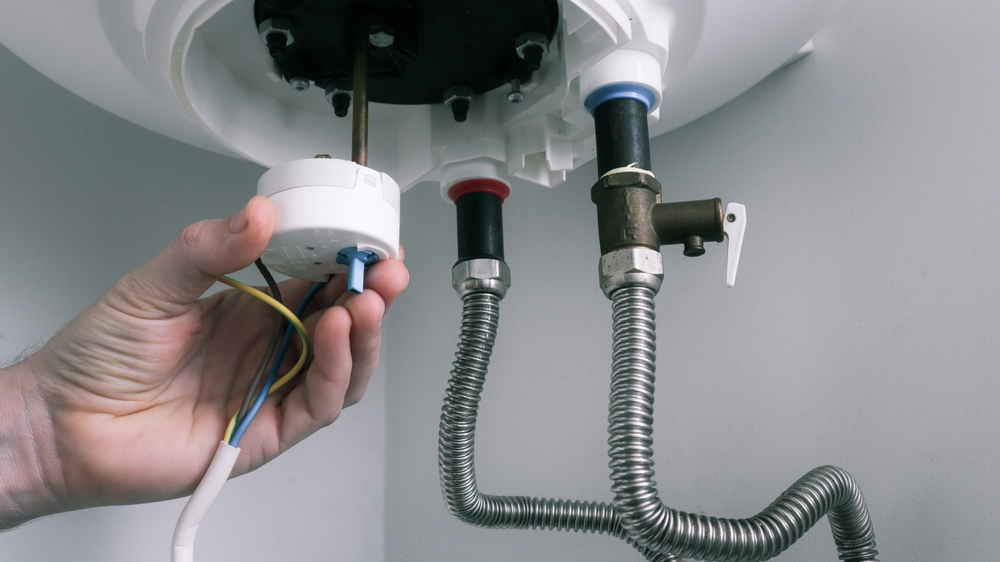Electricity fuels our modern civilization, propelling innovation, comfort, and advancement. Working behind the scenes, electricians, highly skilled professionals, play a pivotal role in guaranteeing the safe and effective utilization of electrical energy. Whether in residential dwellings or sprawling industrial facilities, electricians undertake diverse tasks to maintain seamless operations, ensuring lights remain on and machinery operates smoothly. Throughout this blog post, we delve into the crucial responsibilities of electricians, illuminating their indispensable role in shaping our daily routines.


1
Electricians shoulder a core duty: installing and upholding electrical systems. Proficient in deciphering electrical blueprints, they wire structures and link electrical apparatuses adeptly. Whether in residential, commercial, or industrial settings, electricians meticulously ensure the proper installation of electrical infrastructure, adhering strictly to safety standards. Regular inspections and upkeep of electrical systems are paramount, mitigating potential risks and guaranteeing optimal functionality while maintaining compliance with regulations.
2
In times of electrical trouble, electricians emerge as the reliable troubleshooters. Armed with profound knowledge of circuits, components, and systems, they swiftly diagnose and resolve issues. From faulty outlets to power outages, electricians employ their expertise and specialized equipment to pinpoint the underlying problem and execute efficient repairs. Their adept problem-solving and quick thinking are pivotal in restoring power and maintaining safety.
3
Electricians prioritize safety standards to safeguard themselves and the community. With a deep understanding of electrical codes and regulations, they ensure installations meet safety requirements. By following protocols like proper grounding and insulation, electricians minimize the chances of electrical accidents such as shocks and fires. Conducting meticulous inspections, tests, and adjustments, they assure electrical safety across various environments.
4
With technological progress, electricians assume a vital role in modernizing electrical systems to align with evolving lifestyle needs. Remaining updated on the latest innovations and eco-friendly solutions like LED lighting and smart home automation, they guide clients towards energy-saving strategies. By recommending efficient practices, electricians aid in reducing environmental impact and cutting utility costs. Their efforts in optimizing electrical systems contribute to sustainable practices, paving the way for a greener future.
5
Electricians frequently collaborate within interdisciplinary teams, including architects, engineers, contractors, and other trade experts. Effective communication and seamless coordination are pivotal for project success. Electricians adeptly interpret technical requirements, offer precise estimates, and ensure electrical tasks harmonize with overarching construction blueprints. Additionally, clear communication is paramount when interfacing with clients, as electricians articulate intricate concepts and procedures in accessible terms.
Electricians stand as the unsung heroes of our electrical infrastructure, steadfastly guaranteeing the reliable transmission of power. From installing and maintaining electrical systems to diagnosing issues and promoting energy efficiency, their contributions are vast and indispensable. The next time you switch on a light or charge your devices, take a moment to recognize the skill and dedication of electricians, whose work illuminates our lives in myriad ways.
It’s recommended to schedule electrical inspections for your home or business at least once every 3 to 5 years, depending on the age of your electrical system and any specific concerns or issues you may have noticed. Regular inspections help identify potential hazards, ensure compliance with safety regulations, and maintain the efficiency and reliability of your electrical system. Additionally, if you experience any unusual electrical problems or if you’re planning major renovations, it’s advisable to schedule an inspection to assess the condition of your electrical infrastructure.
Recognizing signs that indicate the need for an electrical panel upgrade is crucial for maintaining the safety and efficiency of your home’s electrical system. If you frequently experience circuit breakers tripping or fuses blowing, it could be a sign of an overloaded panel unable to handle the electrical load. Flickering or dimming lights, buzzing sounds, or burning smells near the panel are also indicators of potential issues. Outdated panel models or the presence of aluminum wiring further emphasize the need for an upgrade to mitigate fire hazards and ensure compliance with modern electrical standards. Consulting with a qualified electrician to assess your electrical panel’s condition is essential for addressing any potential risks and ensuring a reliable power supply for your home.
Improving energy efficiency in your home is essential for reducing energy costs and minimizing environmental impact. Start by upgrading to energy-efficient appliances and using LED light bulbs to save electricity. Seal air leaks around windows and doors to prevent drafts, and insulate your home properly to maintain comfortable temperatures year-round. Additionally, invest in a programmable thermostat to regulate heating and cooling more efficiently. Remember to unplug electronics when not in use and maintain HVAC systems regularly for optimal performance. By implementing these simple measures, you can create a more sustainable living environment while enjoying long-term savings on your energy bill.
In case of an electrical emergency or outage, it’s important to prioritize safety and take appropriate steps to mitigate risks. Firstly, remain calm and assess the situation. If there’s an immediate danger, such as sparks, smoke, or flames, evacuate the premises and call emergency services if necessary. If it’s safe to do so, turn off the main electrical switch or circuit breaker to prevent further damage or injury. Avoid touching any electrical appliances or wires, especially if they’re wet or damaged. If the outage is widespread, check with neighbors to determine if it’s a localized issue or a larger power outage. Contact a licensed electrician to inspect and resolve the electrical problem promptly.
©2023 | All Rights Reserved